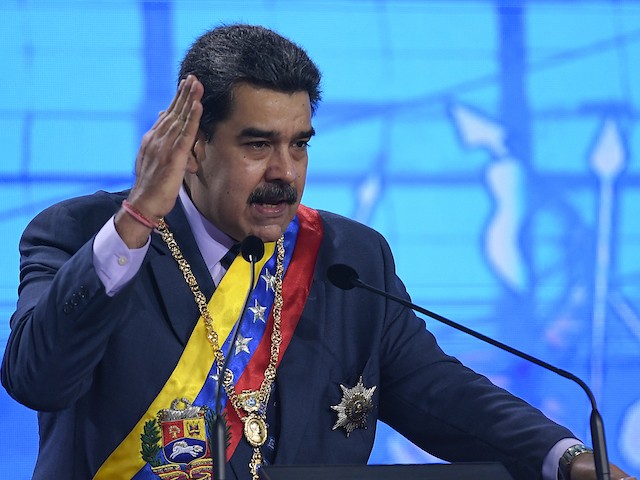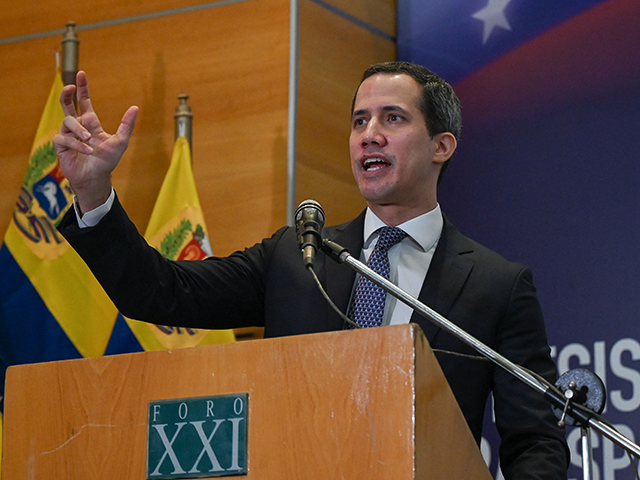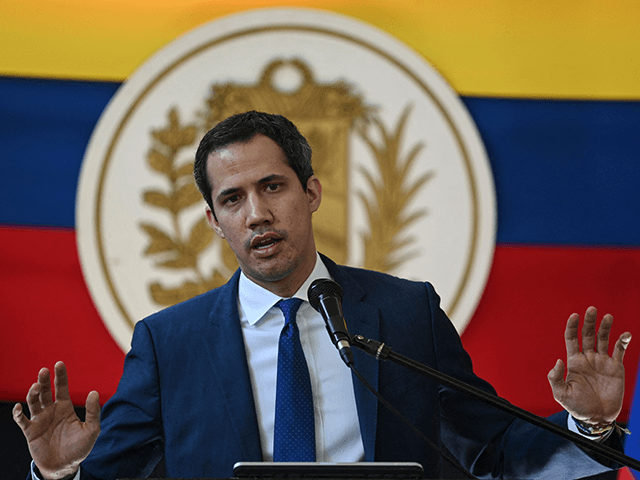CARACAS, Venezuela — The defunct government of now-former Venezuelan President Juan Guaidó owes $20.7 million to a group of U.S. law firms that handled litigation on its behalf, according to a report published by Reuters on Friday.
The litigation involved creditors seeking to collect debts for bond defaults and nationalizations carried out during the socialist rule of Hugo Chávez more than 15 years ago.
The last democratically elected institution in Venezuela, the 2015 interaction of the National Assembly, established Juan Guaidó interim government and named him president in 2019, with a mandate to organize free and fair elections. Venezuela’s constitution allows the National Assembly to dissolve the executive and replace it with a caretaker institution in the event of a “rupture in the democratic order.” Socialist dictator Nicolás Maduro triggered the use of the constitutional provision through his refusal to step down at the end of his presidential term in 2019, clinging to power through a rigged election held in 2018.
The interim government — which had received the international recognition of the United States, Canada, the European Union, and 50 other countries — had been tasked with ousting Maduro and restoring democracy in Venezuela. To that end, it was granted custody of Venezuela’s frozen overseas assets, keeping them out of reach from Maduro’s socialist regime.
Initially, the interim government was intended to have a short duration, with the intent to dissolve it after the ouster of the Maduro regime and the restoration of democracy. Since it failed to reestablish order, the interim government had its validity renewed on a yearly basis until the opposition-led National Assembly members who had initially established it voted to dissolve it in December, leaving Maduro’s illegitimate regime as the sole uncontested rule in Venezuela.

Venezuelan President Nicolas Maduro speaks during a ceremony marking the start of the judicial year at the Supreme Court in Caracas, Venezuela, January 22, 2021. (AP Photo/Matias Delacroix)
The Reuters report stated that, during its tenure, the interim government had hired eight law firms to handle litigation with a group of companies and bondholders to negotiate the large debt that the South American nation owes them. According to documents reviewed by Reuters the debts amount to more than $60 billion as a result of Hugo Chávez’s socialist nationalization spree and defaulted bonds from the state-owned oil company Petróleos de Venezuela (PDVSA).
One such case, according to Reuters, sought to nullify PDVSA’s 2020 bonds, for which Venezuela’s socialist regime used a majority state of PDVSA’s Houston-based subsidiary Citgo as collateral. The United States banned all transactions involving the defaulted bonds and placed Citgo under protection from creditors through a license last renewed in January 2022. That license is set to expire on January 20, 2023.
Weeks before the dissolution of the interim government, Juan Guaidó expressed hope that the United States would renew the license that protects Citgo.
Reuters’ report also claimed that Venezuela’s interim government had paid $30 million to the law firms between October 2020 and October 2022 but still owes $20.7 million for their services. The documents reviewed by Reuters also allegedly state that failure to pursue the lawsuits would put Venezuela at risk of losing said overseas assets.
The Biden administration no longer recognizes Guaidó’s interim government. As such, the Department of the Treasury’s Office of Foreign Assets Control (OFAC) issued a new license on Monday to allow transactions with the opposition-led National Assembly and to allow it control of Venezuela’s frozen overseas assets in the United States.

Venezuelan opposition leader Juan Guaido delivers a speech during a press conference in Caracas, on September 16, 2022. (Photo by FEDERICO PARRA/AFP via Getty Images)
Following the dissolution of Guaidó’s interim government, the opposition-led National Assembly, now led by exiled lawmaker Dinorah Figuera, insisted that the assets are not at risk and would be kept out of the reach of the Maduro regime.
Figuera stated in an online press conference held on Monday that “there is willingness to honor our commitments,” asserting that the committee that will oversee the custody of the nation’s frozen assets will pay off its debts to U.S. law firms. Figuera also claimed that the National Assembly still does not know the actual status of the assets that were in the custody of Guaidó’s now-dissolved government.
“We are not aware of many actions because the accounts have not been presented. We are waiting for them because the interim government, which has finished its functions, has stated that they will be held accountable,” Figuera said.
The Maduro regime issued warrants on Monday for the arrest of Figuera and the National Assembly’s new vice presidents, Marianela Fernández & Auristela Vásquez, accusing them of the crimes of usurpation of functions, treason, money laundering, and criminal association. Fernández and Figuera currently live in exile in Spain, while Vásquez currently resides in the United States.
The socialist regime’s Attorney General Tarek William Saab also announced that it requested Interpol issue “red notices” for their arrest. “We are going to see what the governments of those countries [Spain and the United States] do with our requests,” Saab said.
Christian K. Caruzo is a Venezuelan writer and documents life under socialism. You can follow him on Twitter here.

COMMENTS
Please let us know if you're having issues with commenting.